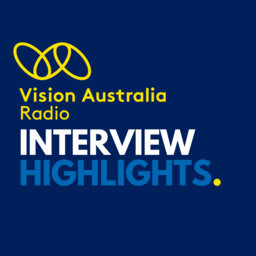Getting to know Vision Australia's Mitch Medcalf.
Mitch is a staff member of Vision Australia. In this interview highlight he shares his experiences growing up, studying law, his passion for DJ'ing and now working within Vision Australia following his participation in the Career Start program. Mitch continues to work in the Advocacy and Government Relations team, and yes, he is still DJ'i ng!
In 1 playlist(s)
Interview Highlights from Vision Australia Radio
Vision Australia Radio Interview Highlights shares a range of discussions initially broadcasted on o…Social links
Follow podcast
Recent clips

Interview Highlight: Professor Henry Brodaty AO
15:01

Interview Highlight: Kath Duncan - Specials at the Arts House
11:51

Interview Highlight: Josh Teague - SA Deputy Leader for the Liberal Party
11:22
 Interview Highlights from Vision Australia Radio
Interview Highlights from Vision Australia Radio